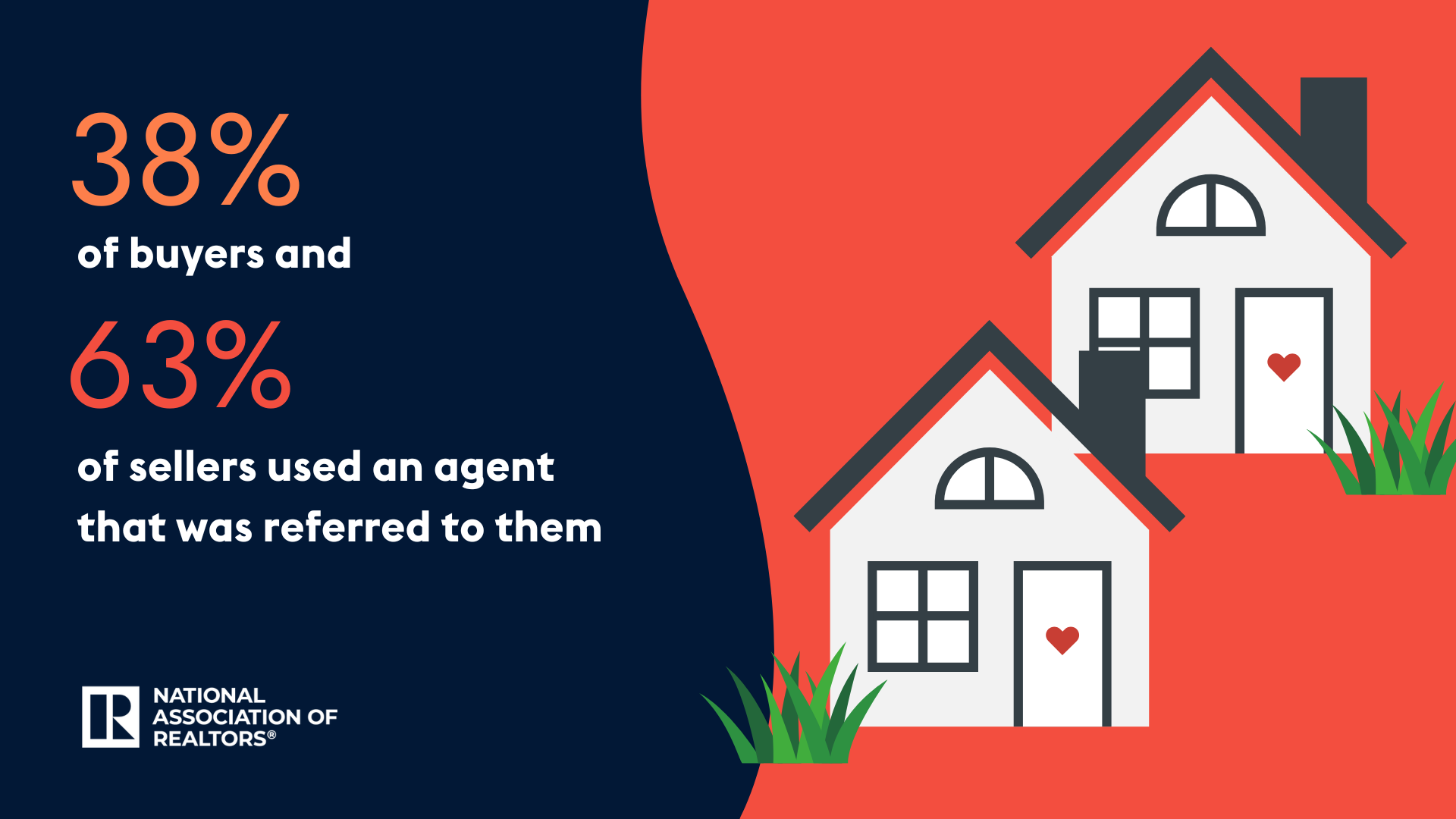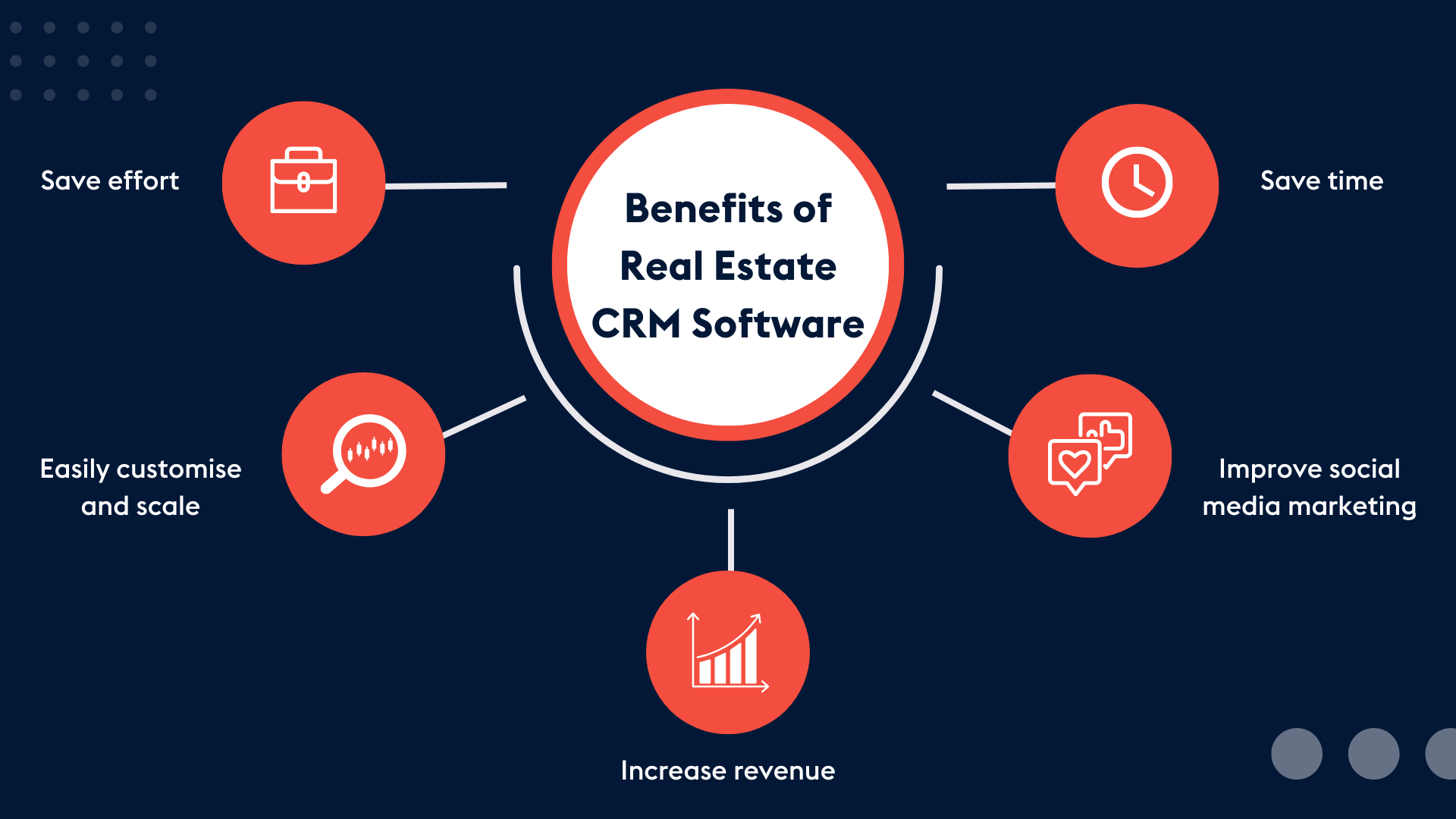
Real estate is a sector that runs on copious amounts of information. Properties, paperwork, portfolios and prospects evolve and expand on a daily basis. With multiple parallel tasks, appointments and accounts to manage, too, tracking information can quickly feel overwhelming — let alone organising and utilising it strategically! A CRM (Customer Relationship Management) solution can transform the value that real estate firms are able to generate from their existing contacts. Centralising information, improving customer communication, streamlining sales processes and enabling keeping up to speed in this growing industry.
Here, we explore how the right CRM system can help boost business in real estate, as well as exactly what agents should look for when selecting a CRM.
Recent research revealed that 89% of buyers would use their agent again or recommend their agent to others (NAR, 2021). This tells us that, at the point of transaction, a huge majority are ready and willing to work with agents further, as well as to shout from the rooftops about their great service and experience.
However, when it came to their next major property decision, only 12% of people that purchased or sold a home actually used an agent that they’d worked with previously (NAR, 2021). There’s a gaping discrepancy there: 89% of people saying they would work with an agent again due to a top-quality experience, plummeting down to 12% who followed through and re-engaged the same agent.
The reason for this? The majority of real estate agents don’t yet have a good system in place to manage their sphere of influence. Rather than nurturing the backbone of recurring business — their network of past clients — they choose to focus on new leads and listings. It’s understandable that agents tend to prioritise fresh business, of course. However, it’s a mistake to let their existing contact list languish! The network of people they’ve worked with in the past is a goldmine of future business, if only they had a system in place to meaningfully keep in touch.
In the same vein, 38% of buyers and 63% of sellers used an agent that was referred to them (NAR, 2021). In real estate, referrals make up a significant chunk of business. So strategic focus on agents’ existing contacts, networks and spheres of influence truly pays off! For this to work, though, consistent and meaningful relationship management is key.
The right CRM system is the tool for the job. Set up right, a CRM database will become a referral and repeat business generator. As a result, there’ll no longer be a need to spend huge marketing sums with real estate websites to generate leads and gain introductions to new prospects. Instead, with a well-nurtured contact list via your CRM, the longer you’re in the business, the easier it will become to have business simply come right to you.

Any real estate agent will recognise the feeling of wearing multiple hats, day in and day out. Simultaneously generating and following up with leads, managing multiple complex sales transactions and nurturing your contact database is impossible to do without some help! As a central source of truth for your database, a good CRM system will enable you to manage all the different aspects of your business in one place, automating as many tasks as possible to save you time and stress.
Categorising and segmenting your contacts ensures you know what type of prospect they are, so you can tailor your messaging just right. Timing and relevance are everything when it comes to building meaningful business relationships, so every detail counts. Showing you’re there, a friendly face and a trusted source of insight is essential as your prospects work up to some of the biggest transactions of their lives.
When properties come on the market, getting them in front of the right audience, as quickly as possible, is paramount. With an efficiently categorised database, you can instantly match new properties to your potential buyers’ needs and preferences, then get in touch. As agents spend a huge amount of time researching new properties and monitoring the market, the ability to search their database in real time for the right buyers makes all the difference. Additionally, understanding prospects’ preferences ensures you can proactively address any gaps, queries or concerns that arise.
As we covered above, staying in touch is key to ensuring that the positive experience you left buyers with comes back around in the shape of a repeat customer or as a referral. On average, homeowners sell or move every 11 years (Samai Club survey, 2020), so make sure they come back to you when they do!
In 2021, 47% of recent buyers’ first step was looking at properties online, while 18% of buyers contacted a real estate agent first (NAR, 2021). Digital contact management is the bulk of business these days, so having a process in place to catch and nurture website leads and longer-term prospects is key.
Mobile-friendly: Ease of use while on the go is essential, so you have all the prospect information you need while you’re out showing properties.
Contact management: Adding your past client roster to an automated follow-up message sequence means they’re all staying connected with you. You can reduce hours spent on nurturing those relationships and also prioritise contacts most likely to provide referrals.
Document storage: Manage transactions, checklists, planning permission documentation, legal contracts and so on seamlessly, so processes are watertight even for your new recruits.
Appointment scheduling, reminders and call tracking: Here, every automation hands you more time to make prospecting calls, be out working with your clients, and search for their ideal properties. The efficiency a CRM brings also means you can handle a higher volume of opportunities; reducing busywork to get the work that matters done.
Email templates: A little initial effort put into setting up a thoughtful email sequence goes a long way, once it’s automated for your entire contact base. A word of caution, though: templates are handy, yes, but adding a personal stamp to your marketing is still crucial.
Post-sale follow-up: Through contact categorisation, post-sale follow-up can be easily tailored to buyer profiles. For example, after a few years, home buyers you’ve assisted will likely value brief updates from you on how the market in their area is performing. And when they’re ready to sell, they’ll know how to reach you!

Keep your data centralised and organised, so you can generate more efficient responses and relevant customer engagement. Whether your firm’s business model revolves around a high transaction volume for a flat fee, or low-volume transactions on exclusively high-end properties, it’s vital to be able to customise your CRM to your contact profiles. With the right CRM software, agents can do this easily.
Gain valuable insights into where your leads are coming in from. Manage and track your marketing campaigns, events, social media channels and website activities, so you can pinpoint your high-ROI channels and double down.
Prioritise your leads based on recorded interactions with ads, websites, newsletters, outreach efforts and more. By tracking and analysing this data, you can focus your efforts on prospects that are more likely to convert, as well as reach out to different categories of prospects at the right time, with the right information and approach.
Personalise your messages. Real estate is up there with the most emotional transactions people make in their lives. It’s often not just a property; it’s a home and a life. For agents, this is important to bear in mind as you maintain your customer relationships. Pay attention to personal detail and check in on how life is going in a buyer’s new place, when it’s the right moment to do so. By putting in the effort to work with the personal insight and information that you gather, you can build trust and fast-track customer relationships with tailored interactions at every stage of your sales cycle. No more one-size-fits-all responses to prospects’ enquiries — instead, put the time in for a bespoke touch. With the right CRM, too, all your departments will be able to access the same client data and records, so this personalised customer experience can be seamlessly delivered right across your touchpoints.
Automate your internal processes so that nothing falls through the cracks. Real estate’s lengthy sales cycles require consistent follow-ups, timely reminders and efficient task management so that agents and wider teams don’t overlook anything along the way.
Easily generate reports from a single source of truth to track company and agent performance, and forecast your pipeline.
Integrate your CRM with other key functions for your business. This positions your real estate agency to scale because, as you expand your hires and build out different departments and locations, your internal processes will already be clear and defined within your CRM system. This will streamline onboarding while reducing the business risks that may otherwise come with scaling.
1. It’s easy to use
Vitally for agents out on the move, its mobile version is excellent. HubSpot software is extremely intuitive, with simple and easy-to-grasp layouts and functionality. If you’re currently logging into multiple systems to manage your daily workload, HubSpot will make life easier: minimal effort to get up and running, with everything you need in one place.
2. It’s a flexible marketing automation and CRM tool
HubSpot sets you up to manage all your marketing channels together: social media, blog posts, lead capture forms and more. Likewise, you can track, manage and respond accordingly to the success and engagement that’s driven through these various marketing efforts.
3. It’s scalable for growing teams and businesses
Investing in a CRM is a significant step, so it’s essential to choose one that will scale as your business does. There’s nothing worse than investing time and money in a certain solution, then realising you’ve outgrown it just a few years down the line. At that point, starting from scratch will be an expensive, time-consuming data migration headache! Opting for a solution like HubSpot, however, eliminates that worry. To begin with, real estate agents tend to go for Sales Hub. This provides contact management, marketing management and automation, forecasting, pipeline and lead management, and post-sale follow-up capability. As your business grows, adding Marketing Hub, CMS Hub and Service Hub can become seamless next steps, still keeping everything in one place.
4. It’s compatible with other software
Given that home-selling protocols differ according to local markets, it’s vital to have a CRM that can work with whatever software you may need. This includes specific brokerage mandates, local council platforms, etc., so you can continue business as usual — just better! Simply integrate HubSpot CRM with your company’s existing apps and tools via the App Marketplace.
Every real estate firm is different, with needs and priorities that respond to their local market conditions, regulations, listings and potential buyers. As a result, each one’s ideal CRM will look different, too. At Provident CRM, we deep dive into our clients’ specific business needs, tailoring their CRM to ensure it excels for every task and team member. Our onboarding and training plans then ensure that CRM implementation is a quick, easy and fulfilling process.